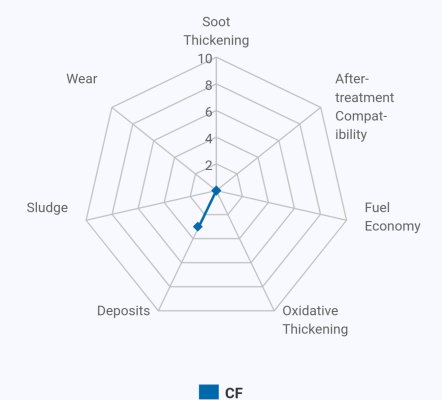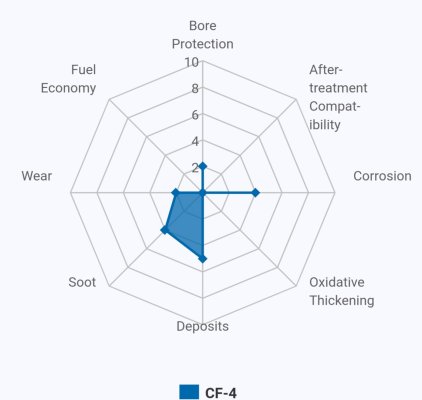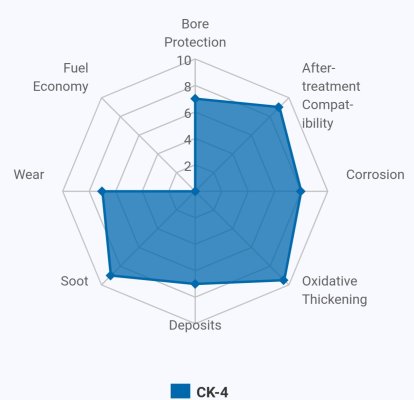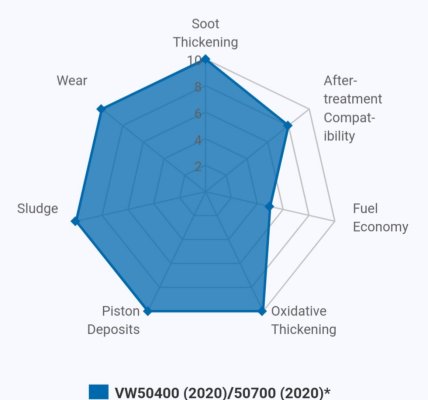Navigation
Install the app
How to install the app on iOS
Follow along with the video below to see how to install our site as a web app on your home screen.
Note: This feature may not be available in some browsers.
More options
You are using an out of date browser. It may not display this or other websites correctly.
You should upgrade or use an alternative browser.
You should upgrade or use an alternative browser.
Did I used the right Oil ?
- Thread starter WhiteEagle
- Start date
- Joined
- Mar 11, 2013
- Messages
- 11,162
- Location
- South Bucks
- Car
- CLS63 SB, ML63, CLK350 'Vert, E350 CGI 'Vert, Triumph Sprint (Bike not Dolly...),
You're doing it again. Snippets...snippets...snippets, same as before.
I'm not convinced you know much about the subject; I think you just find factoids and little bits and pieces on the internet.
Prove me wrong; post some complete, solid and convincing data. Until then...
'S all bollocks, innit?
Last edited:
Bellow
Hardcore MB Enthusiast
They are suitable for any diesel engine - truck or car. The only reasons they are being marketed as truck oils is firstly, Americans don't drive diesel cars, secondly, LE don't sell to the public they sell to industry - including the haulage industry who, guess what? - run trucks.I'm asking you for a CAR engine oil that is API CK-4 but you aren't providing one so this is not a use truck oil in your car engine thread .
I have a PDF but it's too large to post here of the three truck engines run on LE8800 (50,000 mile drain interval which is double the recommended 25,000) stripped for inspection at 600,000 miles and being clean and wear free. Reassembled one of them went on to complete 1 million miles and was in similarly good shape at the end of that.
But you want to turn it away because the marketing is biased toward haulage - like a poxy VW car engine could work it harder than '' a big rig pulling 80,000 lbs up a 10% grade''
Both of these oils pre-cat times had API Sx ratings and were promoted as gasoline oils for passenger cars. LE no longer seek API Sx ratings as although the phosphorous in these oils is benign to cats, phosphorous content > 1000 ppm was not permitted in the 10W/30 sector and presumably the limit was tightened also causing withdrawal of the 15W/40 grade too.
Some test data below. Falex V-block test is either a fail or when a pass, the lowest numbers indicate least wear.
The TFOUT oxidation test figures are in minutes (of oxidation resistance) and the highest number indicates the best oxidation resistance.
LE8800 Falex: 5, TFOUT: 323 (not listed but) LE8130 Falex: 6, TFOUT 480.
Only two oils have a better TFOUT than LE8800 but their Falex results show three times the wear. LE8130 beats them all on both counts.
Old data - from 2002 but as you are stuck in 1994 it will still represent progress for you. However, if you can recommend an oil with better test results, the floor is all yours....
Source here >> Lubrication Engineers 8130?
OIL PASS/FAIL TEETH TFOUT
Amoco Premier Fail ------- 265
Cat Diesel Fail ------- 209
Chevron Delo 400 Fail ------- 342
Mobil Delvac 1300 Super Pass 18 258
Mystic JT-8 Fail ------- 148
Shaffer Supreme 7000 Fail ------- 253
Shell Rotella T Fail ------- 163
Premium Blue 2000 Fail ------- 291
Amoco 300 Fail ------- 209
Amsoil Pass 9 219
Case Fail ------- 190
Castrol RX Super Fail ------- 178
Citgo Ditgard 500 Fail ------- 222
Coastal Unilube Fleet Fail ------- 134
Bobil Delvac 1230 SAE 30 Fail ------- 107
Moper Fail ------- 121
Motorcraft Fail ------- 144
Mr. Goodwrench Pass 16 137
Pennzoil Long-life Pass 17 331
Shell Rimula Super HPDEO Pass 13 227
Shell Rimula-X HPDEO Fail ------- 86
Shell Rotella T SAE 30 Fail ------- 151
Tech 2000 Fail ------- 140
Total Rubia Diesel 4000 Fail ------- 130
Universal SHPD Pass 13 153
Premium Blue Pass 16 361
Castrol Syntec SAE 5w30 Pass 13 195
Castrol Super Fleet Pass 16 243
Mobil-1 Fail ------- 180
Lubrication Engineers 8800 Pass 5 323
Lubrication Engineers SAE 30 Pass 5 253
grober
MB Master
I have always been a bit wary of Castrol Oil products ever since the court case with Mobil Oil in the US over use of the word synthetic. [ Castrol won the RULING I believe] 
The whole thing hinged on the meaning of the word synthetic and whether you defined it as a description of manufacture or composition of an oil. You can't go wrong with Mobil as they were the original manufacturers of what I would term true long life synthetic oils [based on composition]
You can't go wrong with Mobil as they were the original manufacturers of what I would term true long life synthetic oils [based on composition]
The Castrol/Mobil "court case" - how it went down
Found this this morning and thought that it was a good article on WHAT was argued and decided on and by who. Will post a lot of the article, just in case it goes missing on the Interwebs http://xtremerevolution.net/a-defining-moment-for-synthetics-by-katherine-bui-lubricants-world-1999/
bobistheoilguy.com
The whole thing hinged on the meaning of the word synthetic and whether you defined it as a description of manufacture or composition of an oil.
CF-4 dates back to 1994 and is obsolete. Yet the oils I use have existed from at least 1994 and meet the latest API spec which is CK-4 whereas the recently developed oils you recommend can only meet an obsolete CF-4 spec from 1994.
CK-4 spec incidentally includes:
I think that the main reason for this is the high zinc content in CF4 oils which is great for engines (thats's why us classic car owners love diesel oils) but not so good for catalysts. As most new trucks now have DPF filters, the newer engine oils are moving away from zinc and these CF4 oils are now marketed for use in heavy trucks which I believe are exempt.
Interestingly, Mercedes Benz producted a diesel S-Class exclusvely for the US market in the 70's and 80's and excelusefly sold diesels for a while, with the exception of the SL. The American luxury status symbol today is a 3/4 or 1 ton truck with either a duramx, cummins or powerstroke and plenty of people still run diesels.
There are two things to understand about extended service intervals:
- They're not meant for you, they're meant for the fleet manager who's calcaulating running costs over a lease period, so the fewer the better
- The manufacturer does not give a sh*t if you put 400,000 miles on your car. They only care about it lasting through its warranty period
I don't have any charts or marketing brochures, or a lab coat or speak with a german accent. But I've been around cars long enough to know how things work. These type of conversations remind me of the people who run propane in their automative a/c systems in place of freon and then try to convince everyone else on the forum that propane is not flamible.
Be sensible and take care of your property. Oil changes are cheap insurance.
Gazwould
MB Enthusiast
Why is it that all the oils you list/recommend with that VW spec are only API CF-4 rated?
This what the API website says of CF-4 oils:
CF-4 Obsolete CAUTION: Not suitable for use in most diesel-powered automotive engines built after 2009.
CF-4 dates back to 1994 and is obsolete. Yet the oils I use have existed from at least 1994 and meet the latest API spec which is CK-4 whereas the recently developed oils you recommend can only meet an obsolete CF-4 spec from 1994.
CK-4 spec incidentally includes:
''API CK-4 oils are designed to provide enhanced protection against oil oxidation, viscosity loss due to shear, and oil aeration as well as protection against catalyst poisoning, particulate filter blocking, engine wear, piston deposits, degradation of low- and high-temperature properties, and soot-related viscosity increase.''
That isn't manufacturer's puffery - that's the spec laid out by the American Petroleum Institute for manufacturers to meet.
Oil Categories
The American Petroleum Institute (API) is the only national trade association that represents all aspects of America’s oil and natural gas industry. Our more than 600 corporate members, from the largest major oil company to the smallest of independents, come from all segments of the industry.www.api.org
A few of the car oil spec VW 504.00 507.00 have API CF but this is but a tiny part of the overall oil performance profile of a manufacturers oil spec , CF-4 & CK-4 are better and the later is much newer and better but still a smaller part of a manufacturers oil spec overall profile .




merc estate
MB Enthusiast
Phew my head hurts  i don't know whats going on here, but its good to see a lively debate. I like a graph but a spiders web and i'm lost.
i don't know whats going on here, but its good to see a lively debate. I like a graph but a spiders web and i'm lost.
 i don't know whats going on here, but its good to see a lively debate. I like a graph but a spiders web and i'm lost.
i don't know whats going on here, but its good to see a lively debate. I like a graph but a spiders web and i'm lost.- Joined
- Mar 11, 2013
- Messages
- 11,162
- Location
- South Bucks
- Car
- CLS63 SB, ML63, CLK350 'Vert, E350 CGI 'Vert, Triumph Sprint (Bike not Dolly...),
It's another VW advertising snippet off the internet.
'S all bollocks, innit?
'S all bollocks, innit?
Gazwould
MB Enthusiast
Understanding the VW 50400 50700 Approval
Not all engine lubricants are the same. Here we discuss why selecting an approved lubricant can protect one of the most valuable assets many of us often take for granted.
Phil1968
Active Member
- Joined
- Mar 22, 2015
- Messages
- 592
- Car
- C219 CLS 500, W447 Vito 119 CDI
Each of the five Mercedes Vito work vans I've had over the last 20 years with the OM651 2.2 turbo diesel have had oil changes as per the variable service indicator (averaging between 20 to 25k miles between changes) & they all went on past 300,000 miles without consuming any oil between services. Just to throw the cat amongst the pigeons 
- Joined
- Jun 24, 2008
- Messages
- 49,603
- Location
- London
- Car
- 2022 Hyundai IONIQ 5 RWD / 2016 Suzuki Vitara AWD
The key issue with "web" graphs is that they appear to give equal importance to all of the parameters measured, I.e. the score isn't weighted against the relevance or importance of any specific parameter for any specific application. The other issue is that they only measure those parameters that were selected for the graph, but do not show other parameters that weren't selected and may potentially be relevant for certain applications.
In terms if engine oil, it is simply not clear what benefits, if any, will be noticeable to the owner, when using a higher scoring oil over a lower scoring one.
In terms if engine oil, it is simply not clear what benefits, if any, will be noticeable to the owner, when using a higher scoring oil over a lower scoring one.
geoffus
MB Enthusiast
- Joined
- Apr 2, 2020
- Messages
- 1,557
- Location
- Burbage
- Car
- E250 AMG Sport Convertible, B200, Yamaha YZF R1, Suzuki 650 Bandit.
Exactly, I think some worry about oil far too much, some even say you should change every 6 months or 5000 miles as oil has not progressed since 20/50 GTX used in a Cortina.Each of the five Mercedes Vito work vans I've had over the last 20 years with the OM651 2.2 turbo diesel have had oil changes as per the variable service indicator (averaging between 20 to 25k miles between changes) & they all went on past 300,000 miles without consuming any oil between services. Just to throw the cat amongst the pigeons
Some may say that your Vito's never went cold, did lots of motorway non stop miles, were caressed from start up and never thrashed.
I think engines are engineered better and oil has followed suit.
I also disagree that cars are only manufactured to last just through their warranty, I think Mercedes, Toyota and Honda would disagree strongly, as would many others.
I also disagree that cars are only manufactured to last just through their warranty, I think Mercedes, Toyota and Honda would disagree strongly, as would many others.
- Sealed for life automatic transmission
- Nikasil cylinders
- Plastic chain tensioners
- 100,000 spark plug intervals
- Biodegradable wiring harness
geoffus
MB Enthusiast
- Joined
- Apr 2, 2020
- Messages
- 1,557
- Location
- Burbage
- Car
- E250 AMG Sport Convertible, B200, Yamaha YZF R1, Suzuki 650 Bandit.
Those engineers think of everything
- Sealed for life automatic transmission
- Nikasil cylinders
- Plastic chain tensioners
- 100,000 spark plug intervals
- Biodegradable wiring harness
The Prize at the End of the Road
The latest Mercedes-Benz to pass the 1 million mile mark is a 1970 280SE, acquired for the Mercedes-Benz Museum Collection from its original owners, George and Luzstella Koschel of Orange County, California. The Koschels bought the car new and drove it for 1,019,000 miles.Download an Application
Every time there is an oil thread the VW oil specs are thrown into the arena as being superior and I have to say with some justification.
It's simple to explain. VW produced an engine called the pump duse which used the camshaft to both operate the valves and to operate the injectors. With the cam lobes having this dual duty it meant narrow contact areas and potentially very high wear levels. The oil had to be something special to keep premature cam wear at bay. The evidence that it was special was soon illustrated by pump duse cams wearing rapidly if the wrong oil spec was used.
So while it was a great engine given the correct oil the underlying superiority of the VW oil spec is because it had to cope with a very demanding engine which could be argued was poor design.
If only MB could have pulled off the same trick by having an oil spec that could resolve it's own bit of poor design in the form of cam chain and sprocket wear. They must have tried because the MB specs include a specific test for M271 valve train wear.
Will VW spec oil control cam chain and sprocket wear in and MB engine as well or better than MB's own oil. I honestly don't know but I suspect it has a fighting chance.
It's simple to explain. VW produced an engine called the pump duse which used the camshaft to both operate the valves and to operate the injectors. With the cam lobes having this dual duty it meant narrow contact areas and potentially very high wear levels. The oil had to be something special to keep premature cam wear at bay. The evidence that it was special was soon illustrated by pump duse cams wearing rapidly if the wrong oil spec was used.
So while it was a great engine given the correct oil the underlying superiority of the VW oil spec is because it had to cope with a very demanding engine which could be argued was poor design.
If only MB could have pulled off the same trick by having an oil spec that could resolve it's own bit of poor design in the form of cam chain and sprocket wear. They must have tried because the MB specs include a specific test for M271 valve train wear.
Will VW spec oil control cam chain and sprocket wear in and MB engine as well or better than MB's own oil. I honestly don't know but I suspect it has a fighting chance.
Yeah and i'll bet money that they didn't change their oil every 25000 miles.

The Prize at the End of the Road
The latest Mercedes-Benz to pass the 1 million mile mark is a 1970 280SE, acquired for the Mercedes-Benz Museum Collection from its original owners, George and Luzstella Koschel of Orange County, California. The Koschels bought the car new and drove it for 1,019,000 miles.
Download an Application
I've had several of those cast iron engines. They're tough for sure but that's not why this car went 1m miles. That's all down to the owners who were maticious about their maintainence and probably did 3000 mile oil changes which were very common in the US when these cars were new. If it was down to engineering, they'd all have 1m miles.
Last edited:
Bellow
Hardcore MB Enthusiast
The above is what you say the VW spec can do. But oils with that approval are only rated to API CF-4.A few of the car oil spec VW 504.00 507.00 have API CF but this is but a tiny part of the overall oil performance profile of a manufacturers oil spec , CF-4 & CK-4 are better and the later is much newer and better but still a smaller part of a manufacturers oil spec overall profile .
View attachment 121866
The above shows the breadth of API CF-4 capability. If VW's spec is such that it can attain API CK-4 (the current spec) why doesn't it have it?
Gazwould
MB Enthusiast
To gain any approval costs eye watering sums of money , there is no point in shelling out if the manufacturer spec alone is already beyond that .
Bellow
Hardcore MB Enthusiast
How do they get API CF-4 approval without submitting it? And if the 'manufacturer spec' is beyond the CK-4, why isn't it awarded?To gain any approval costs eye watering sums of money , there is no point in shelling out if the manufacturer spec alone is already beyond that .
The whole superiority of the VW spec hangs on one thing - the notion that the PD cam arrangement is demanding on oils. The Falex test is a reasonable test of this capability. Show mw one oil with the VW spec that has a Falex test result close to the values of the CK-4 oils I have referred to (and use).
merc estate
MB Enthusiast
Wait, let me drag up a chair and get some popcorn, this will be good.
Users who are viewing this thread
Total: 1 (members: 0, guests: 1)
Similar threads
- Replies
- 27
- Views
- 727
- Replies
- 4
- Views
- 455

